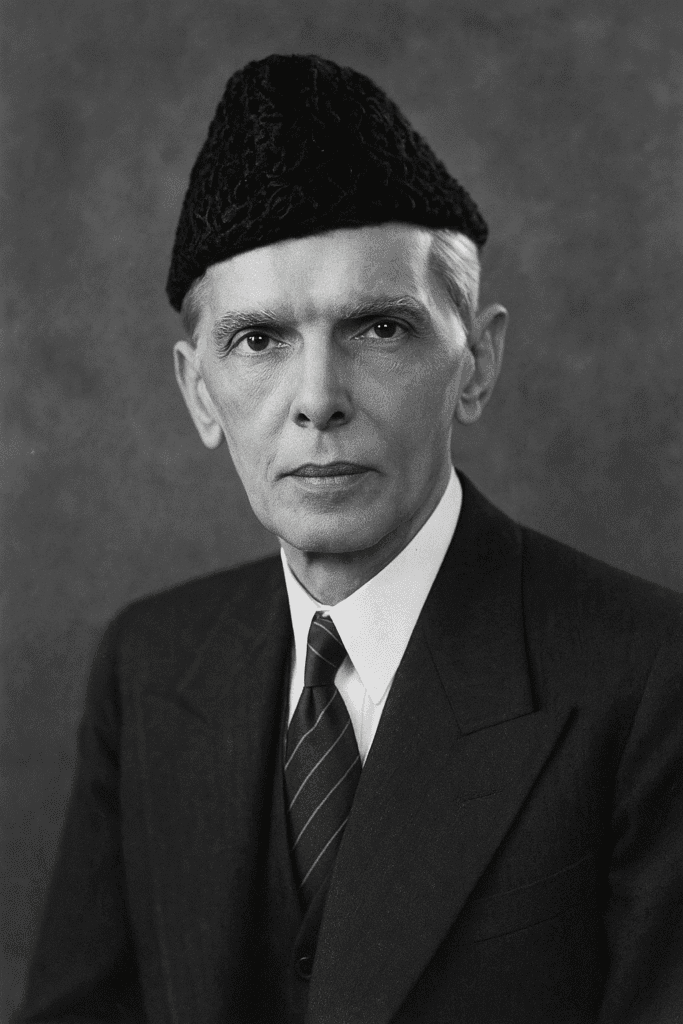Quaid-e-Azam Muhammad Ali Jinnah, the founder of Pakistan, played a historic and decisive role in transforming the dream of a separate homeland for Muslims in South Asia into reality. His vision, leadership, and political acumen turned scattered aspirations into a united movement that led to the creation of Pakistan on 14 August 1947.

Early Political Career and Shift in Vision
Jinnah began his political journey with the Indian National Congress, promoting Hindu-Muslim unity. However, he realized over time that the rights and identity of Muslims were being overlooked. This led him to join the All-India Muslim League, where he redefined its purpose and championed a distinct political voice for Indian Muslims.
The Lahore Resolution and Demand for Pakistan
His most significant political milestone was the Lahore Resolution of 1940, which formally demanded independent states for Muslims in British India’s northwestern and eastern regions. Jinnah’s strong advocacy convinced millions of Muslims that they were not just a religious minority but a separate nation with unique cultural, political, and social needs.
Leadership in Negotiations and Pakistan Movement
Jinnah’s negotiation skills with British authorities and Congress leaders demonstrated his unwavering commitment to Muslim interests. He consistently fought for constitutional safeguards, equal representation, and autonomy for Muslim-majority provinces. His guiding principles—“Faith, Unity, Discipline”—inspired Muslims across India to unite for the Pakistan Movement.
Legacy as the Founder of Pakistan
Despite serious health challenges, Jinnah’s determination never wavered. His diplomatic tact and moral authority made him the undisputed leader of Indian Muslims. The creation of Pakistan in 1947 stands as a testament to his vision and persistence.
Nation-Building Vision After Independence
Beyond achieving independence, Jinnah envisioned Pakistan as a modern, progressive, and inclusive state. In his speeches, he emphasized religious freedom, equal rights for minorities, and rule of law, making it clear that Pakistan should uphold democracy and social justice. His blueprint for governance continues to guide Pakistan’s political discourse today.
Global Recognition and Lasting Influence
Internationally, Jinnah is often recognized as one of the most influential leaders of the 20th century, admired for his integrity, eloquence, and diplomatic skill. His efforts not only shaped South Asia’s political landscape but also set an example of peaceful constitutional struggle for self-determination. The Quaid-e-Azam’s role in the creation of Pakistan remains a cornerstone of the nation’s identity and an enduring source of pride for Pakistanis worldwide.
Challenges During the Partition Period
The journey to Pakistan’s creation was not without hardship. Jinnah had to manage communal tensions, political opposition, and logistical challenges during the partition of British India. Millions of people were displaced, and Jinnah worked tirelessly to ensure rehabilitation efforts and the establishment of key state institutions under severe resource constraints.
Establishing Pakistan’s Political Foundations
Jinnah also laid the groundwork for Pakistan’s constitutional development. He encouraged the creation of a federal system of government, respect for minority rights, and the establishment of strong judicial and administrative frameworks. These foundations continue to influence Pakistan’s legal and political systems today.
Inspiration for Future Generations
For Pakistan’s youth and leaders alike, Jinnah remains a symbol of perseverance, vision, and unity. His life story continues to inspire generations to work toward national integrity, education, economic development, and social harmony. Remembering his struggle reinforces the importance of leadership rooted in principles and moral strength.
Conclusion
Quaid-e-Azam Muhammad Ali Jinnah’s vision, leadership, and dedication made Pakistan a reality, leaving an enduring legacy of unity and justice. We salute his struggle and achievements, which continue to inspire generations of Pakistanis to work for the nation’s progress, harmony, and prosperity.

Leave a Reply